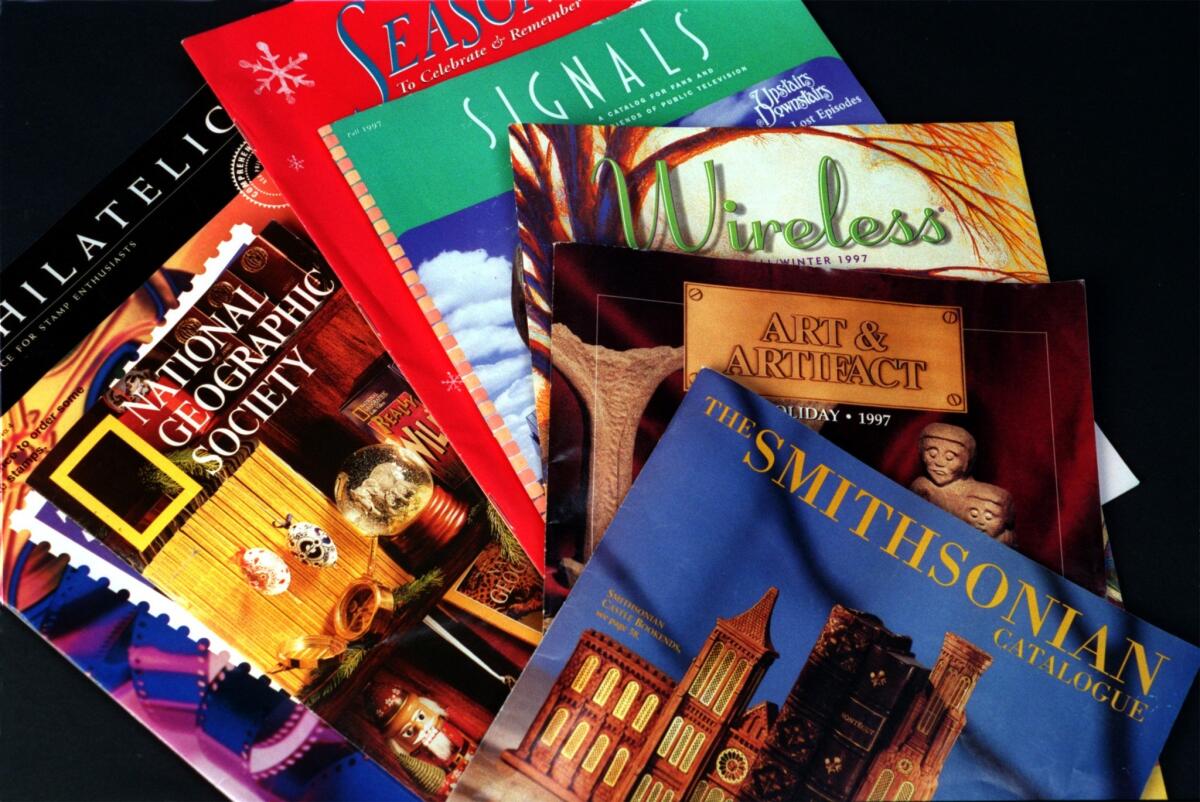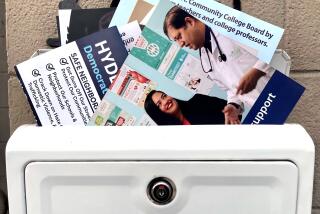Ask Laz: What to do when your mailbox overflows with catalogs

- Share via
It’s that time of year when merchants flood people’s mailboxes with catalogs, regardless of whether they want them.
Florence says she receives nearly a dozen catalogs every day. She wants to know if there’s a way to put a stop to that.
There is, but the fix may not be 100% effective. It also may not last.
ASK LAZ: Smart answers to consumer questions
First, a reminder why this is such a big problem. So-called list brokers compile and sell lists of people who may fit a retailer’s target demographic.
So if you willingly receive catalogs from L.L. Bean, for example, don’t be surprised if every other purveyor of outdoorsy clothing and gear also comes knocking at your door. If you buy something from Victoria’s Secret, other dealers of make-you-pretty duds will soon be vying for your attention.
It’s like a virus. One list leads to another. And before you know it, you’re on dozens of lists. And every catalog or online purchase you make just exacerbates the problem.
So what can you do?
One thing to try is a free service called TrustedID. You set up an account and opt out of receiving catalogs from specific retailers.
There’s also an app called PaperKarma. You use your smartphone to snap a pic of the catalog you don’t want, send it in and, presumably, the folks behind the app will take care of things.
Or climb into bed with the direct-marketing industry by signing up for DMAchoice from the Direct Marketing Assn. Officials with that group say they can help make sure their members don’t pester you.
Remember: None of these services are foolproof. And in this glorious digital age, once your name and address are out there, they don’t go away. So you never know when the catalogs will start coming again.
Of course, there’s always the recycling bin.
If you have a consumer question, email me at asklaz@latimes.com or contact me via Twitter @Davidlaz
More to Read
Inside the business of entertainment
The Wide Shot brings you news, analysis and insights on everything from streaming wars to production — and what it all means for the future.
You may occasionally receive promotional content from the Los Angeles Times.









